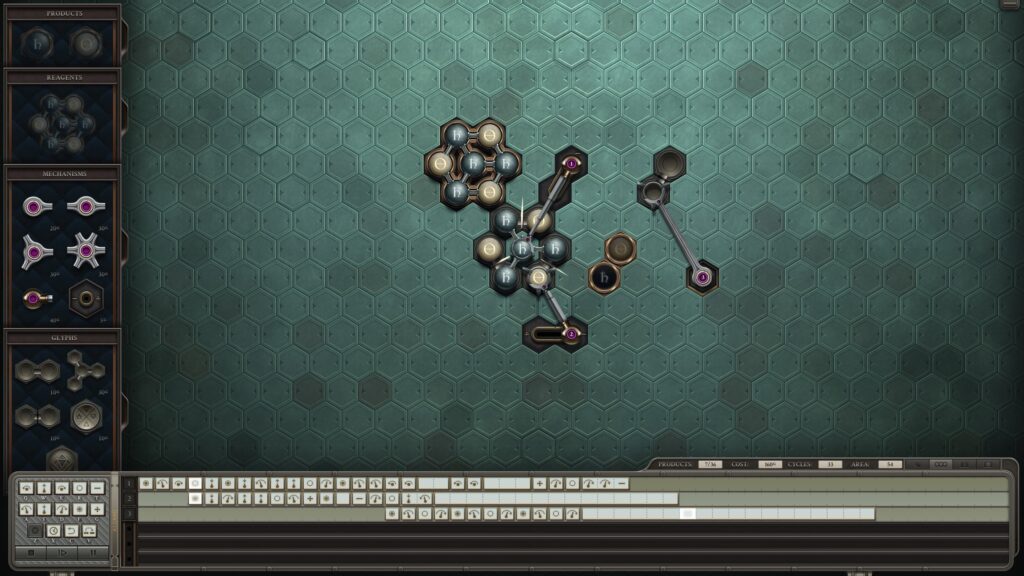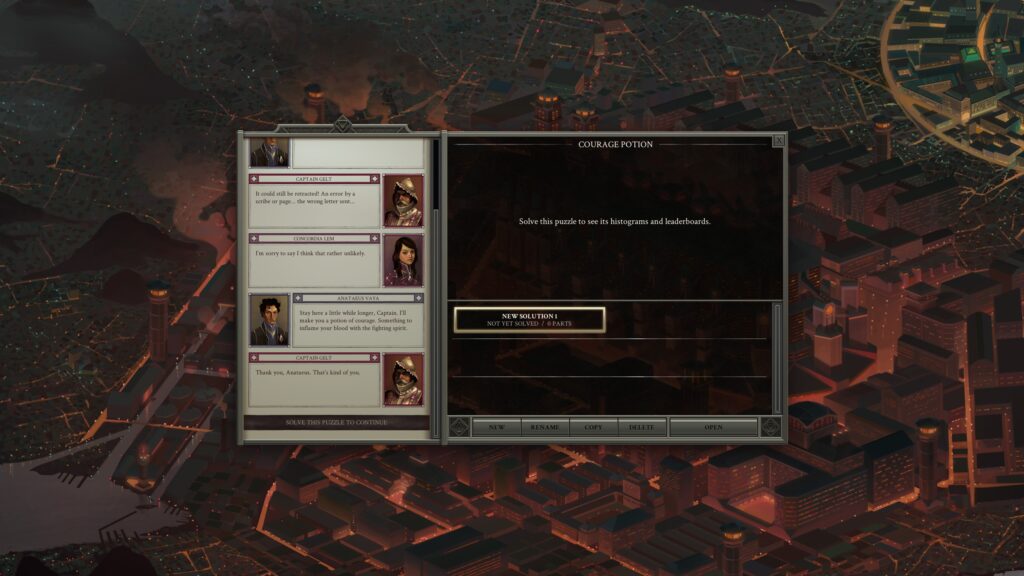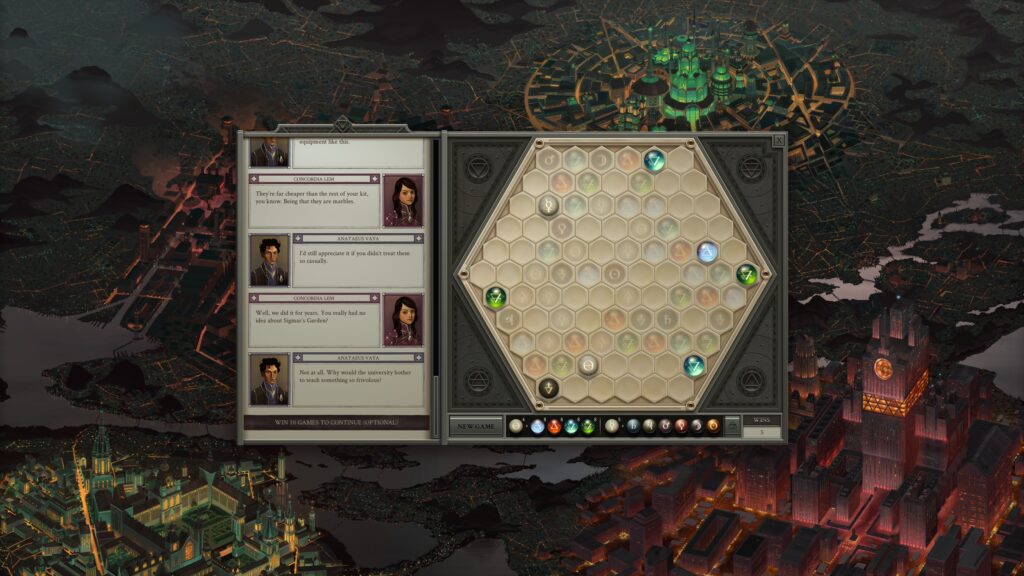
I haven’t skipped a single one of Zachtronics’ puzzle games so far but now I’m thinking that I should probably have skipped this one. To me this feels like a rehash of SpaceChem but with hexes instead of squares. In reality, it goes back to an even earlier game by Zach Barth before he even founded the company but that was before my time. I loved SpaceChem but it was so difficult that I could never do some of the later puzzles. This title however is in line with their more recent games with drastically reduced difficulty. The main game posed no challenge to me at all and the accompanying story is so shallow I wondered why there needed to be a story at all.
The game is set in a society ruled by aristocratic houses and a world in which alchemy is real. The player is supposed to be some hotshot genius alchemist who breezes through school and is instantly hired into a house upon graduation. Your employers however are targeted by an aggressively expanding enemy house and sorely underestimate their willingness to resort to violence. The upshot is that you’re tasked with first making trivialities but must quickly pivot to making things like armor and swords and even later on tools and equipment for skullduggery. None of this feels consequential in the least as the characters are forgettable and the dialogue is generic. The in-game lore around alchemy and how it developed over time is somewhat intriguing to me but there’s not really much of it. Compared to the backstory and characters in, say, Shenzen I/O, this is so badly written that it would have been better to present the puzzles as pure abstraction absent of context.

Mechanically, the puzzles are set on a hexgrid of infinite size and the player uses manipulator arms to shuffle atoms around, rotate them, bind them together or break them apart. It’s very similar to SpaceChem though it uses the classical elements of alchemy and the metals of antiquity instead of modern chemistry. You program each of the arms with a sequence of commands to take the provided reagents and transform them into the desired product for each puzzle. There are also tools to bind atoms together or break them apart, to transmute metals, turn elements to salt and so on. As usual with these games, you’re graded on the cost of the components you deploy, how many cycles it takes to create what is needed and the amount of space you use. However there aren’t actually any limits in terms of cost, space, number of arms or time.
With no constraints of any kind, all of the puzzles in the main game are easily solvable even if you have to resort to an inelegant, brute force approach. You can still put considerable effort into optimizing the solutions of course but unlike any of the other Zachtronics games I’ve played so far, there’s no challenge in just completing the puzzles themselves. There are no conditional statements to control the flow of the commands so all of them are always executed in order and simply repeat continuously. The most complicated things you have to do are probably to synchronize the movements of the manipulators, perhaps padding them for length if necessary. Every once in a while, new tools are introduced to add a little extra complication but they’re not that complex to figure out. They mostly add flavor instead of changing the mechanics in any meaningful way.

Of course, this being Zachtronics, after you complete the main campaign you unlock a series of advanced puzzles. Arguably these are how the whole game should have been like as the constrained space forces you to resort to be much more creative. I find the advanced puzzles to be tuned to be too difficult however and I don’t think I’m motivated enough or smart enough to solve them within any reasonable amount of time. In between the puzzles, there’s also a mini-game that at first looks like a simple tile-matching solitaire game but imposes some rather restrictive extra rules. It calls for some careful advance planning and I’m not convinced that every game is solvable. It’s amusing but probably won’t hold your interest for too long and I’m irritated that you have to win many games to unlock snippets of lore.
Overall this is my least favorite of the Zachtronics games. It’s poorly written, the puzzles in the main game are too easy and it feels too much like SpaceChem. It feels like a half-hearted effort, leaving me even less enthused about making a go at the advanced puzzles. Anyway Zachtronics is closed now though there are still a few games left in their ludography that I’ve yet to buy. I suppose I owe it to them to at least buy their very last game Last Call BBS one day.